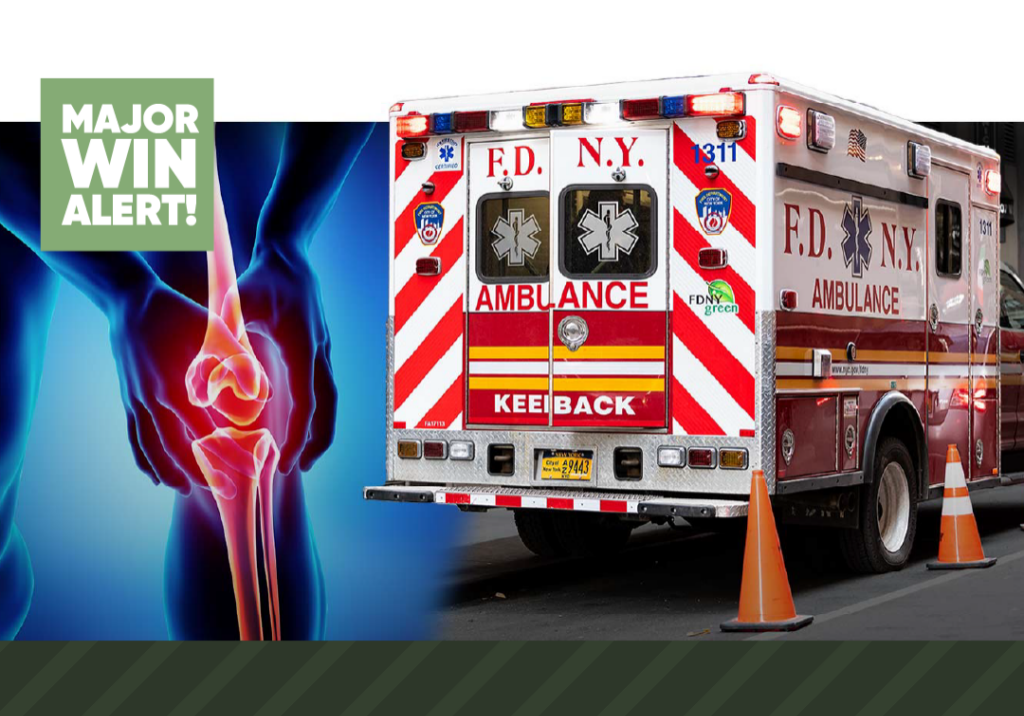What are medical provider claims?
Medical provider claims are contractual disputes brought by medical providers, and medical facilities. They often arise from extraterritorial workers’ compensation claims where a claimant has some type of treatment in New Jersey. New Jersey does not have a fee schedule for medical services under its workers’ compensation structure it uses the “reasonable and customary standard”. New York, by contrast does. Medical providers and facilities often try to recover the difference between a fee schedule allowance and the New Jersey “reasonable and customary” standard which is often much higher.
Why are these claims in the Division of Workers’ Compensation?
Under the 2012 amendments to the New Jersey Workers’ Compensation Statute, the Division was given exclusive jurisdiction over these matters pursuant to N.J.S.A. 34:15-15.
The issue of extraterritorial jurisdiction is currently on appeal before the Superior Court of New Jersey, Appellate Division.
What is the statute of limitations for medical provider claims?
The Supreme Court of New Jersey held that the statute of limitations for medical provider claims is six years. See Plastic Surgery Ctr., PA v. Malouf Chevrolet-Cadillac, Inc., No. A-78/79/80, 2020 N.J. LEXIS 116, at *1 (Feb. 3, 2020).
How can we minimize medical provider claims?
1)If your company has a national presence, avoid sending claimants out of state for treatment, if the state you are sending them to does not have a fee schedule.
2)Work with bill repricing companies to determine in plain language the price of the service billed.
If we have medical provider claim petitions, what should we do?
Since the issue is on appeal in New Jersey, the best course of action is to have defense counsel answer the medical provider claims and deny in the answer additional payment for lack of jurisdiction. Defense counsel should then file a motion to dismiss for lack of jurisdiction. It is also helpful to attach proof of payment for medical services.
Are there any cases that are helpful with this issue?
There is a New York decision, Bowman v. J & J Log & Lumber Corp., 758 N.Y.S.2d 852 (App. Div. 2003). New York’s Third Department held that a claimant could treat in a neighboring state for a New York workers’ compensation claim, but medical providers would be subject to the New York Fee Schedule. This case is persuasive, as it is a New York case, but it is helpful because there is not an appellate level case from New Jersey as of this time.
Another case that we often argue is Marconi v. United Airlines, 460 N.J. Super. 330 (App. Div. 2019). In Marconi, the petitioner filed both an occupational exposure claim for his left hip and an accident-specific left hip injury claim petition. Marconi was employed by United Airlines and spent the majority of his career in Philadelphia International Airport. Marconi was a New Jersey resident and would sometimes call Newark Liberty International Airport, to speak with staff, and would sometimes go to Newark for trainings. The Appellate Division, applying a jurisdictional analysis, held that being a resident of New Jersey was not enough for New Jersey to retain jurisdiction. The Appellate Division also examined the six factors of jurisdiction from Professor Larson’s treatises which include: 1) the place where the injury occurred; 2) the place of the making of the employment contract; 3) the place where the employment exists or is carried out; 4) the place where the industry is localized; 5) the place where the employee resides; 6) place whose statute the parties expressly adopted by contract. The Appellate Division held that the fact that United had a hub in New Jersey was not enough for Marconi to establish claims in New Jersey. The Appellate Division noted that nothing that Marconi did advanced United Airlines purpose within the State of New Jersey.












